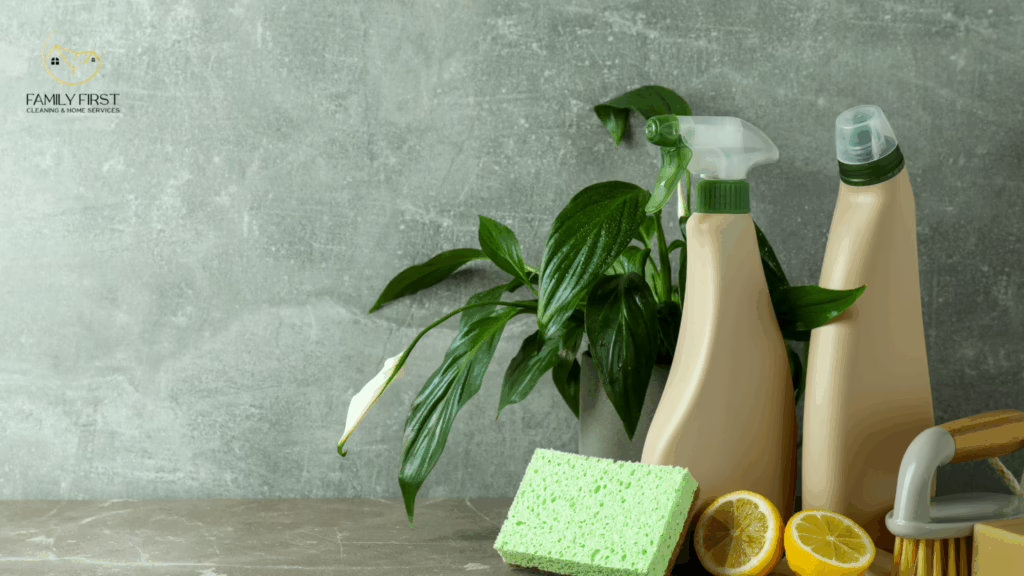Cleaning supplies and chemicals are essential for maintaining a tidy home, but they come with their share of risks if not stored properly. You may find yourself wondering, where should cleaning supplies and chemicals be stored to ensure safety and efficiency? Don’t worry—we’re here to guide you through the dos and don’ts of storing these household essentials with style and safety.
Why Proper Storage Matters
Improper storage of cleaning supplies isn’t just a clutter problem—it’s a safety hazard. These products often contain chemicals that can harm children, pets, and even the environment if mishandled. Additionally, incorrect storage can lead to leaks, spills, or dangerous chemical reactions. The solution? A systematic approach to organizing and storing these supplies.
The Golden Rules of Storage
Let’s break down the essentials of where cleaning supplies and chemicals should be stored into actionable tips.
1. Choose the Right Spot
The location matters more than you think. Your chosen storage spot should:
- Be Cool and Dry: Avoid areas with excessive heat or humidity, like near ovens or dishwashers. High temperatures can cause chemicals to degrade or containers to expand and leak.
- Offer Ventilation: Good airflow minimizes the buildup of fumes from cleaning supplies.
- Be Out of Reach: Store items in a high cabinet or a locked closet to keep children and pets safe.
Common locations include:
- A utility or laundry room cabinet
- A kitchen cabinet under the sink (with childproof locks)
- A dedicated cleaning supplies closet
2. Group Supplies Strategically
Not all cleaning supplies should live together. To prevent accidents:
- Keep Incompatible Chemicals Apart: Store acids (like vinegar and toilet bowl cleaner) away from bases (like bleach). Mixing these can create dangerous fumes.
- Separate Flammables: Aerosols and solvents should be stored away from heat sources or open flames.
- Avoid Food Storage Areas: Never store cleaning supplies near food or in the pantry to prevent accidental contamination.
3. Use Original Containers
Always keep cleaning supplies in their original packaging. Why?
- Original containers are designed for safe storage.
- Labels provide critical information like usage instructions and first-aid steps.
If you must transfer products to another container, make sure it’s clearly labeled and airtight.
4. Organize for Accessibility
Efficiency and safety go hand in hand when it comes to organizing your cleaning supplies. Here’s how:
- Use storage bins or caddies to group items by use (e.g., bathroom cleaners, kitchen cleaners).
- Place frequently used items at eye level for easy access.
- Label shelves or bins to avoid rummaging through potentially hazardous chemicals.
Storage Solutions for Different Spaces
Under the Sink
- Great for: Everyday cleaning supplies like dish soap and surface cleaners.
- Caution: Install childproof locks and keep flammable items elsewhere.
Dedicated Cleaning Closet
- Great for: Bulk storage of all cleaning products.
- Tip: Add shelves and hooks to maximize space.
Utility Room
- Great for: Storing larger cleaning tools like mops and vacuum cleaners alongside supplies.
- Note: Keep chemical cleaners in a separate, ventilated area.
Safety First: Childproofing and Pet-Proofing
Children and pets are naturally curious, which makes securing cleaning supplies a top priority:
- Install safety locks on cabinets or closets.
- Store hazardous items, like bleach and drain cleaners, on high shelves.
- Use childproof caps and ensure they are tightly sealed.
Regular Maintenance and Disposal
Storing cleaning supplies isn’t a “set it and forget it” task. Routine maintenance ensures everything stays safe and functional:
- Check Expiration Dates: Many cleaning products lose their effectiveness over time.
- Inspect Containers: Look for leaks or damage that could cause spills.
- Dispose of Safely: Follow the instructions on the label for proper disposal. Never pour chemicals down the drain unless directed.
Mistakes to Avoid
Even the most well-meaning homeowners can make storage mistakes. Avoid these common pitfalls:
- Storing in Hot Areas: Heat can cause chemical reactions or container failures.
- Mixing Products: Accidental reactions can release harmful fumes.
- Ignoring Ventilation: Fume buildup can pose health risks over time.
Long-Term Benefits of Proper Storage
Taking the time to properly store cleaning supplies and chemicals has lasting benefits:
- Improved Safety: Reduced risks for accidents involving children and pets.
- Increased Product Longevity: Proper storage prevents degradation.
- Easier Access: A well-organized storage space saves time during cleaning tasks.
Professional Help When Needed
If organizing your cleaning supplies feels overwhelming or you’d prefer a professional touch, Lone Tree cleaners are here to help. Their expertise goes beyond cleaning—they can help you maintain a safe and efficient home environment.
Additional Resources
For more information on safe storage and handling of household chemicals, visit the Environmental Protection Agency (EPA) for expert guidance.


